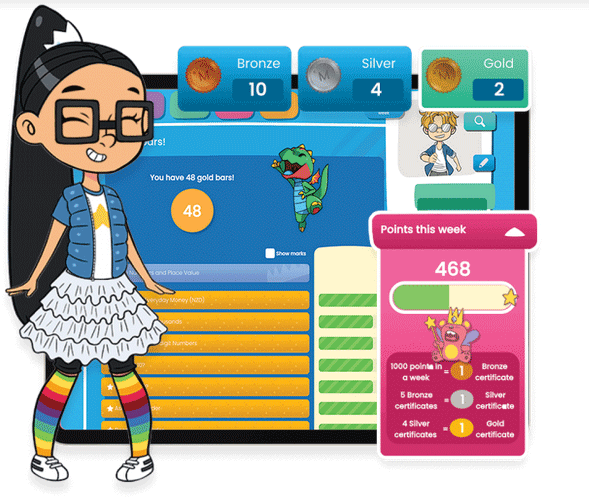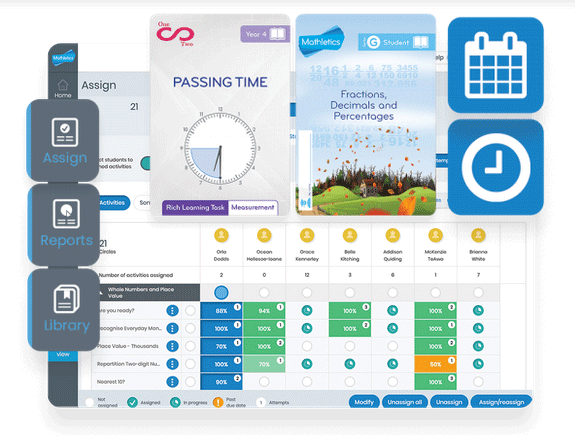Teaching Math Through Gamification
Mathematics is not engaging for a lot of learners and this is specifically the case for young students. Learning with theory and books proves mundane for young students and games are the solution! How? The Gamification of Mathematics. Games have become a very common part of culture in the young and for due reason. Games are stimulants. It is a way for a person to experience something without having had even left a room. Entire story lines and narratives are created through games. Here is how bringing them to Mathematics helps.
The primary purpose of any game is to let the player enjoy and engage in an activity that leads to winning. Math curriculums tend to be heavily leaning towards traditional academic ways of instruction. Therefore, teaching mathematics with games has taken such precedence in recent times, where teaching students with application is the gold standard of education. Games provide the perfect platform to the students to be able to apply their concepts and learnings.
Due to the nature of the subject, learning Mathematics is commonly an intense activity that involves a lot of time and patience. Through games, since students learn to apply their concepts and use them, the learning experience becomes far more meaningful.
Making Math Studies a Rewarding Experience
Motivation is another positive attribute that comes from teaching with games. Games are inherently designed to bring about a certain degree of competitive spirit, while also providing the player with a tangible goal to meet. Translating this mindset into teaching Mathematics brings about such attributes of gaming to the student’s learning experience.
The nature of gaming itself helps students with taking the stress away from learning Math. As opposed to traditional ways of teaching Math, games allow the students to step away from the formal way of learning. This enables them to learn with application and understanding.
Mathletics emerging curriculum blends the intrinsic and extrinsic motivation factors to provide gamified learning experience to keep the students engaged in the subject.

Health Competition without any Complication
Games also make it easier for the student to build up on their skills steadily, while choosing their levels of understanding and applications. This also allows for students to work with their own personal levels of understanding while also learning from other students in the activities. This tackles on a common complaint from students about Math, that it’s too complicated. There are no complications in games, right? It is only a challenge!
Re-attempting to Level-up the Game
The repetitive nature of Mathematics also benefits from games since it gears the learners to try again even after they have been unsuccessful on a ‘level’. This results in students making multiple tries, whereas they could have simply forfeited in case of a regular mathematical problem. Building a resistance to trial fatigue is also something games do very well. Flappy bird a game from 2013, is a great example of this. Players will repeatedly try to win a game that was unwinnable! That is the kind of spirit gaming brings to Mathematics!
While being a great tool to teach, games also allow students to bring about independence in their learning. Independent thought and understanding of concepts go a long way for students which is applicable not just for Mathematics. It is a skill that is useful for the students in all kinds of learning and in life. It allows them to think for themselves and find a solution to their problems.

Skills Development at its Best
Other benefits of gamification of mathematics include helping the student develop skills such as strategic thinking, problem solving & application. Theory learning is not able to facilitate such an effective way to learn, because of how the human brain works. Students learn with experience and trial, which is exactly what games can create.
Mathematics is generally associated with other ‘boring’ activities by students and gamification has a serious potential to change that. Bringing in games to Math not only makes it less of an intimidating activity, but also makes it a fun process for the student. Helping them build a foundation of concepts with the help of real-world, tangible applications. Teaching Math with games also helps eliminate a phenomenon in students referred to as ‘Math anxiety’. With its truly engaging and accessible nature Math games enable students to not be intimidated by concepts of Mathematics, since it is a game anyway, right?







Recent Comments